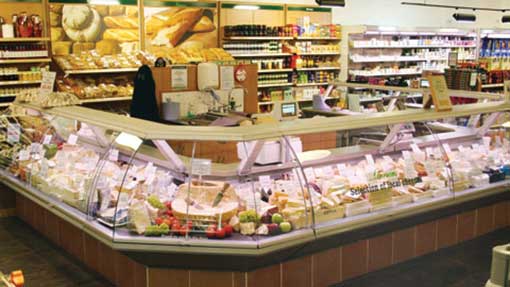Top tips on farm retailing

Selling direct is hard work but there were plenty of tips from advisors and successful operators at the recent FARMA conference. Jez Fredenburgh reports
Setting up a farm shop is hard work and entails a massive learning curve.
Sound research and understanding of what you are getting yourself and your family into, are essential, say those who have been through the process.
It be stressful and expensive and requires a myriad of new skills and knowledge, including relationship building with local authorities, creative marketing, and an understanding of people management. There are also tax implications as well as access, transport and environmental health issues to consider.
Three experienced farm shop operators gave their top tips and shared what they had learned along the way.
Celia Gaze, founder, The Wellbeing Farm, Lancashire
Since opening 10 months ago, The Wellbeing Farm has won a string of awards including the British Cookery School Award. The farm includes a shop and cookery school, and runs farmers’ markets, weddings, corporate events, and school visits.
• Research what others are doing – Ms Gaze visited 185 venues and enrolled on nine cookery school classes
• Be aware of how stressful and emotional your project could be for you and your family
• Planning applications should emphasise job creation and tourism
• Think about transport issues your shop might create – get police and transport authorities on side
• Grant funding may be available – investigate the EU’s website (http://europa.eu) under ‘access to finance’
• Be aware of the business rates implications – Ms Gaze’s annual business rates bill is £17,000
• Use free tools like social media, raise interest from local and national press, use Open Farm Sunday and have a good website
• Differentiate your business – The Wellbeing Farm focuses on the environment and food provenance
• Other businesses may be willing to help – a top oven manufacturer kitted out the farm’s cookery school because potential customers would use it
Gary Oakes, founder, Oakes Farm Shop, Warwickshire
Oakes Farm Shop has been open just over a year, and includes a butcher, shop, deli, and café. It took three years to get up and running.
• Planning consultants are not cheap but remove stress
• Use retail experts, not architects, to design shop layout
• Don’t give up on getting finance – Mr Oakes found only Lloyds would lend to him
• Keep contractors local – they will then be on hand, will be known by buildings regulations officers, and will spread the word locally about your business
• Involve authorities like environmental health officers from the start
• Get a good human resources consultant. Issues with staff can be some of the most stressful and can land you in hot water if you don’t know your employer obligations
See more: Retail epxertise key to farm shop success
Nigel Chandler, manager of Garson’s Farm Shop, Surrey
Garsons (pictured above) is one of UK’s longest established and largest farm shops, and has been running for 20 years. The business comprises of a PYO, a farm shop, and garden centre.
• Do budgets regularly – Garson’s budgets four times a year to increase accuracy
• Understand the difference between mark-ups and margins and make sure you know these for your business
• Analyse profit margins by category and ensure mark ups suit each product rather than having a blanket approach
• Consider how you sell a product and what customers want – turnover of meat sales at Garsons went from £200k (2010) to £700k (2013) when it moved from pre-packed meat to a butchery counter
• You don’t have to produce everything you sell – buying good quality produce locally cuts labour costs
• Ensure waste is reduced – use produce nearing its sell by date – for example, in the restaurant and for tasters – have a good price reduction policy, allow staff to buy stock cheaply and trained them in reducing waste and in good stock rotation
• Always check the weather, plan stock accordingly
• Look at prices of competitors and ensure you are selling at the highest possible price while remaining competitive
• Think about the demographics in your area and what will appeal
What is FARMA
FARMA is the National Farmers Retail and Markets Association. It is a co-operative of more than 400 accredited members representing and championing farm shops, farmers markets and pick your own businesses.
FARMA also provides support through training, workshops, regional discussion groups and an annual conference- the Farm and More conference.
Smiths Gore took over the management of FARMA last week, and plans to turn the co-operative into a more widely-recognised and member-led organisation.
